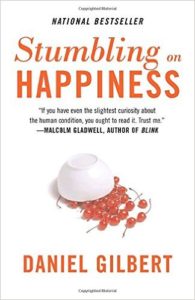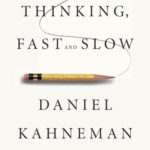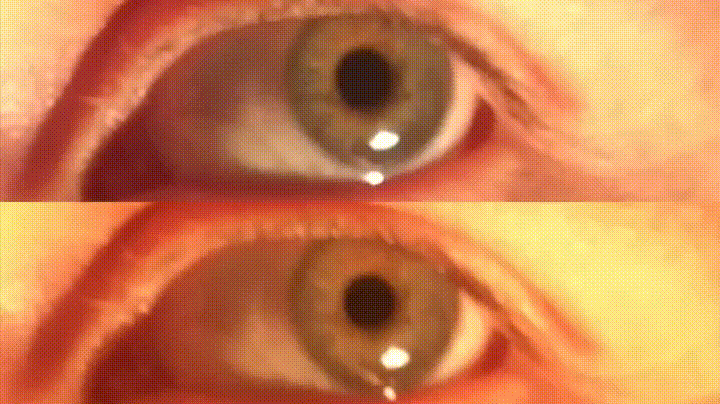 Another book bites the dust during my holiday read-athon, Daniel Gilbert‘s Stumbling on Happiness.
Another book bites the dust during my holiday read-athon, Daniel Gilbert‘s Stumbling on Happiness.
_Stumbling on Happiness_ is an entertaining glimpse into the revolution in applied psychology that has taken place in the last few decades. Gilbert’s frequent use of example and references to specific psychology studies made the book accessible and engaging.
For instance, Gilbert illustrates the anchoring effect by discussing an experiment in which participants were asked how many African countries are represented in the UN. One group was asked whether the number was larger or small than 10, while another was asked whether it was larger or smaller than 60. The former group tended to chose a number larger than but close to 10, while the latter chose one less than but close to 60 (the actual number is 54 apparently). This and many other experiments, Gilbert explains, show that people make estimates by referencing their current situation and correcting from there. This has the effect of skewing their estimates, whether of UN member nations or their future happiness.
The examples were helpful, but often the level of detail or large number of examples given made it difficult to follow the original point. When Gilbert explains how we often incorrectly imagine our feelings will persist indefinitely into the future, he says, “Teenagers get tattoos because they confident that DEATH ROCKS will always be an appealing motto, new mothers abandon promising law careers because they are confident that being home with their children will always be a rewarding job, and smokers who have just finished a cigarette are confident for at least five minutes that they can easily quit and that their resolve will not diminish with the nicotine in their bloodstreams.” I struggled to retain the narrative thread as I waded through that hamdinger of sentence, and many others.
_Stumbling_ is also VERY similar in topic and structure to Daniel Kahneman‘s Thinking, Fast and Slow (which was published 6 years later). However, the latter book was organized around Kahneman’s own professional trajectory, which made a nice logical progression (at least for me) from topic to topic, whereas I couldn’t always follow the sequence from chapter to chapter in _Stumbling_. On the other hand, _Thinking_ is a little drier and more technical, which might turn some people off.
So if you’re looking for introduction to recent developments in applied psychology and the science of happiness, _Stumbling on Happiness_ is a very good choice; just be prepared for a lot of colorful (if lengthy) anecdotes.

